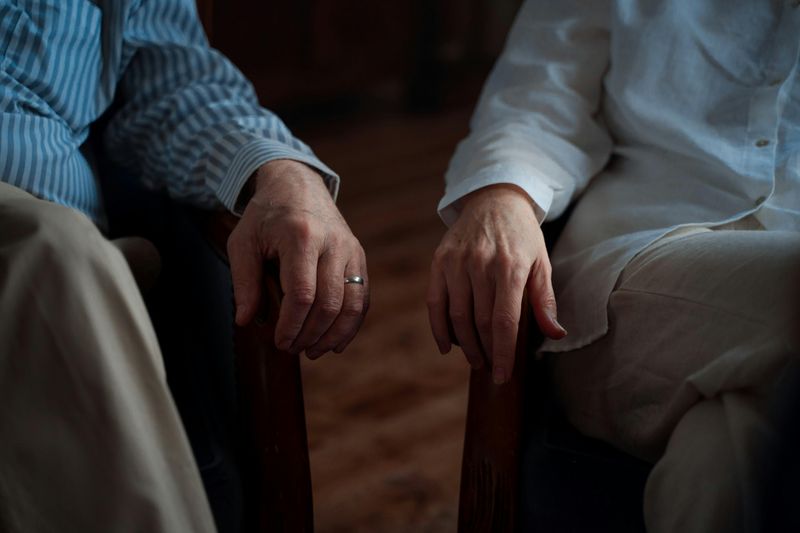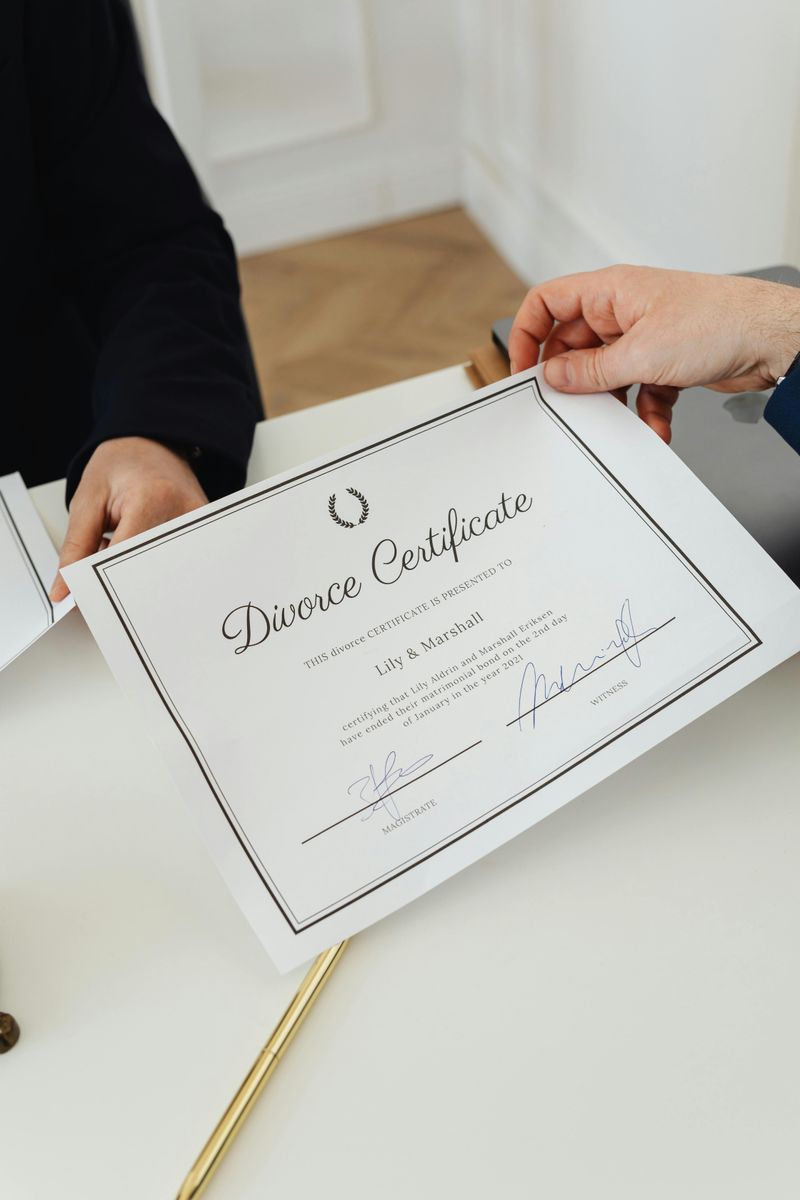Excuses Couples Use to Stay in an Unhappy Marriage

Unhappy marriages often continue long past their expiration date. Many couples find themselves trapped in a cycle of disappointment and resentment, yet they remain together using various justifications. These excuses become comfortable shields against making difficult changes, even when both partners know deep down that something isn’t working. Understanding these common rationalizations might help you recognize patterns in your own relationship or support someone who’s struggling with a difficult decision.
1. We’re staying together for the kids

Children become the ultimate reason to endure marital misery. Parents convince themselves that maintaining an intact family—regardless of its emotional climate—serves their children’s best interests. What they don’t realize is that kids absorb tension like sponges.
Growing up watching unhealthy relationship patterns teaches children that love equals sacrifice and unhappiness. These households often lack genuine joy and authentic connection. Children develop a distorted view of what relationships should be.
Research consistently shows that children fare better with happy, separated parents than with miserable ones who stay together. They learn relationship skills from watching their parents—what lessons are you teaching when you tolerate constant unhappiness?
2. Divorce is too expensive

Money concerns keep countless couples trapped in loveless marriages. The prospect of legal fees, dividing assets, maintaining two households, and potentially paying alimony creates genuine financial anxiety. For many, this financial fear outweighs emotional wellbeing.
Long-term calculations rarely enter the equation. The emotional cost of remaining miserable year after year doesn’t appear on any balance sheet. Neither does the impact of stress on physical health, career performance, or personal growth.
While divorce certainly carries financial consequences, viewing it as an investment in future happiness offers a different perspective. Many divorced individuals report that despite temporary financial setbacks, the emotional freedom was worth every penny spent on starting over.
3. We’ve invested too many years

Time investment becomes a powerful anchor in troubled marriages. After decades together, couples feel that walking away would invalidate all those shared birthdays, anniversaries, and life milestones. This sunk-cost fallacy keeps them holding on when letting go might be healthier.
Memory plays tricks too. The good times from early years cast a nostalgic glow that obscures present-day problems. “Remember how we were?” becomes more important than “Look at what we’ve become.” Past happiness becomes justification for current misery.
Unfortunately, using history as the primary reason to stay together only guarantees more unhappy years ahead. Time invested doesn’t automatically translate to future returns in a relationship that’s fundamentally broken. Sometimes the bravest decision is acknowledging that the past was beautiful but the future needs a different path.
4. Things will get better if we wait

Passive hope becomes a relationship strategy for many unhappy couples. They believe that somehow, magically, problems will resolve themselves if given enough time. This wishful thinking requires no uncomfortable conversations, no therapy appointments, and no personal growth.
Years pass while couples wait for this spontaneous improvement. Meanwhile, resentment quietly accumulates like dust in forgotten corners. Small irritations transform into major grievances, and communication patterns grow more dysfunctional.
Without active intervention, relationship problems typically worsen rather than improve. Time alone heals very little in marriages lacking honest communication and mutual effort. Waiting for change without working for it represents one of the most common—and dangerous—relationship gambles couples make when facing serious marital problems.
5. I don’t want to start over

The dating world looks terrifying after years of marriage. Many unhappy spouses imagine themselves fumbling through awkward first dates, navigating dating apps, or explaining their past to potential partners. This fear of starting fresh keeps them clinging to familiar unhappiness rather than risking new unknowns.
The prospect of being alone amplifies these concerns. After years of companionship—even unhappy companionship—the thought of empty evenings and solo meals can feel overwhelming. Identity questions arise too: Who am I outside this relationship?
Beneath these fears often lies a deeper worry about worthiness. Many wonder if anyone else would want them, especially as they age. This fear of rejection becomes so powerful that it overshadows the reality that staying in an unfulfilling marriage represents its own form of rejection—rejection of personal happiness and authentic living.
6. What will people think?

Social judgment looms large in marriage decisions. Couples worry about disappointing parents who paid for lavish weddings, facing whispers at community gatherings, or explaining their situation to coworkers. Cultural and religious backgrounds often intensify this pressure, making divorce feel like public failure.
Holiday gatherings become particularly stressful to imagine. Who gets which friends in the split? Will family members take sides? The anticipated awkwardness of these situations keeps many couples together long after love has faded.
External opinions sometimes matter more than internal happiness. The irony is that most people care far less about others’ marriages than we imagine. Those who truly love you will want your happiness above all else. Those who judge your choices rather than support your wellbeing probably shouldn’t influence major life decisions anyway.
7. At least I’m not alone

Fear of loneliness keeps countless marriages intact. Many people would rather share their lives with someone they’ve grown apart from than face an empty house. The mere presence of another human—regardless of connection quality—provides basic comfort that many aren’t willing to sacrifice.
This compromise creates a peculiar paradox. Physically accompanied but emotionally isolated, these individuals experience profound loneliness despite never being alone. Their conversations remain superficial, their intimacy mechanical, and their true selves hidden even from the person sharing their bed.
Companionship without genuine connection represents a hollow victory. True loneliness isn’t measured by physical proximity but by emotional intimacy. Many divorced individuals report feeling less alone after separation than they did during years of emotional disconnection in their marriages. Authentic solitude often proves less painful than the isolation experienced within a loveless relationship.
8. I can’t afford to live alone

Financial dependence creates golden handcuffs in many marriages. One partner may have sacrificed career advancement for childcare duties or supported the other through education. Now they face limited earning potential and frightening financial prospects if they leave.
Housing costs particularly terrify those contemplating separation. Moving from a dual-income household to a single income means downsizing dramatically in most cases. The thought of explaining to children why they’ve moved from a house to an apartment adds another layer of shame.
Healthcare concerns also keep couples together, especially in countries without universal coverage. Staying married for insurance benefits represents a uniquely modern marital compromise. While financial concerns are legitimate, they sometimes mask deeper fears about capability and self-sufficiency. Many discover unexpected resilience and resourcefulness only after taking the leap into independence.
9. We have too many shared responsibilities

Practical entanglements create powerful inertia in unhappy marriages. Joint businesses, shared rental properties, co-owned pets, and community commitments weave couples together in ways that feel impossible to untangle. Each shared responsibility becomes another reason to postpone separation.
Family businesses present particularly complicated situations. Couples who work together face the prospect of unraveling both personal and professional relationships simultaneously. The thought of dismantling something built together over years feels like erasing part of life’s work.
Extended family complications add another dimension. Caring for aging parents or supporting adult children creates obligations that seem impossible to maintain after separation. These practical considerations certainly require careful planning, but they’re rarely as insurmountable as they initially appear. Creative solutions exist for most logistical challenges when both parties approach them with goodwill and flexibility.
10. It’s not that bad

Minimization becomes a survival strategy in troubled marriages. Couples downplay serious problems by comparing themselves to relationships they perceive as worse. “At least he doesn’t hit me” or “At least she doesn’t cheat” becomes the bar for acceptable treatment—an alarmingly low standard.
This comparison game creates false comfort. Relationship quality exists on a spectrum far broader than simply “abusive” or “not abusive.” The absence of the worst problems doesn’t indicate the presence of a healthy, fulfilling partnership.
Over time, this minimization leads to normalized dysfunction. Behaviors that would shock outsiders—screaming arguments, weeks of silence, separate bedrooms—become just “how we are.” The slow erosion of expectations means many couples genuinely believe their situation isn’t “that bad,” having forgotten what genuine happiness and connection feel like. Their relationship thermostat resets to accept chronic dissatisfaction as normal.
11. I don’t want to hurt them

Misguided compassion keeps many people trapped in unfulfilling marriages. They worry about devastating their partner with rejection, especially if that person hasn’t done anything “wrong” beyond growing in a different direction. This concern intensifies when the spouse struggles with health issues, insecurity, or past abandonment.
Guilt becomes a powerful adhesive. The person wanting to leave imagines their partner’s tears, loneliness, or potential depression. They wonder how someone who once brought them such joy deserves such pain. The responsibility feels overwhelming.
Ironically, this approach hurts both people more deeply long-term. The unhappy spouse lives inauthentically while resentment grows. The other partner unknowingly lives with someone staying out of pity rather than love—a reality most would find humiliating if they knew. True kindness sometimes means causing short-term pain to prevent years of mutual suffering in a relationship that’s run its course.
12. Marriage is supposed to be hard

Cultural messaging about marriage creates confusion about normal relationship struggles versus genuine incompatibility. Many couples believe that marriage inherently requires tremendous suffering and sacrifice. This mindset transforms even dysfunctional situations into badges of honor rather than problems to address.
Religious influences often reinforce this perspective. Phrases like “till death do us part” and “for better or worse” get interpreted as mandates to endure any situation, no matter how damaging. The concept of marriage as a sacred covenant can prevent people from acknowledging when a relationship has become irreparably broken.
A dangerous blurring occurs between healthy commitment and unhealthy martyrdom. While all relationships require work and compromise, sustainable partnerships also provide joy, support, and growth. Constant misery isn’t a sign of commitment strength—it’s a sign that something fundamental isn’t working. Marriage should be challenging at times but not chronically painful.
13. They’ll change eventually

Hope becomes a relationship trap when it’s focused on transforming a partner rather than accepting reality. Many unhappy spouses cling to potential rather than present circumstances, believing their partner will magically evolve into someone different. Years pass while they wait for this metamorphosis.
Warning signs from early dating get dismissed as temporary phases. “Once we’re married…” becomes “Once we have kids…” becomes “Once the kids are grown…” becomes “Once we retire…” The goalposts for expected change constantly move forward while the relationship remains stagnant.
This wishful thinking prevents acceptance of a fundamental truth: we must love people for who they are, not who we hope they’ll become. People certainly grow and evolve, but core personality traits, values, and relationship patterns rarely transform dramatically. Building a marriage on anticipated future changes rather than present compatibility creates a foundation of disappointment and resentment.
14. I don’t want to fail

Marriage gets tangled with personal identity and perceived success for many people. Ending a relationship feels like admitting defeat—a public acknowledgment that something important didn’t work out despite best efforts. This perception of failure can be particularly painful for perfectionists or those raised with strong messages about marriage permanence.
Professional accomplishments don’t provide immunity from this feeling. Even highly successful individuals who excel in careers, parenting, or other areas can feel profound shame about divorce. The wedding vows, witnessed by loved ones, feel like promises broken.
Reframing becomes essential for moving forward. Recognizing that relationships sometimes complete their natural course doesn’t diminish their value or mean anyone failed. Sometimes the bravest, most successful outcome involves acknowledging when a relationship no longer serves both people’s wellbeing and growth. Perhaps the real failure lies in sacrificing decades of potential happiness to avoid an uncomfortable truth.

Comments
Loading…